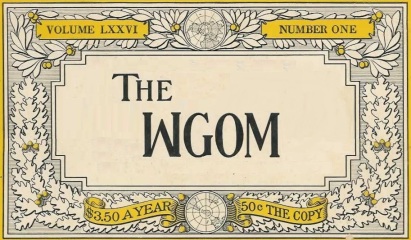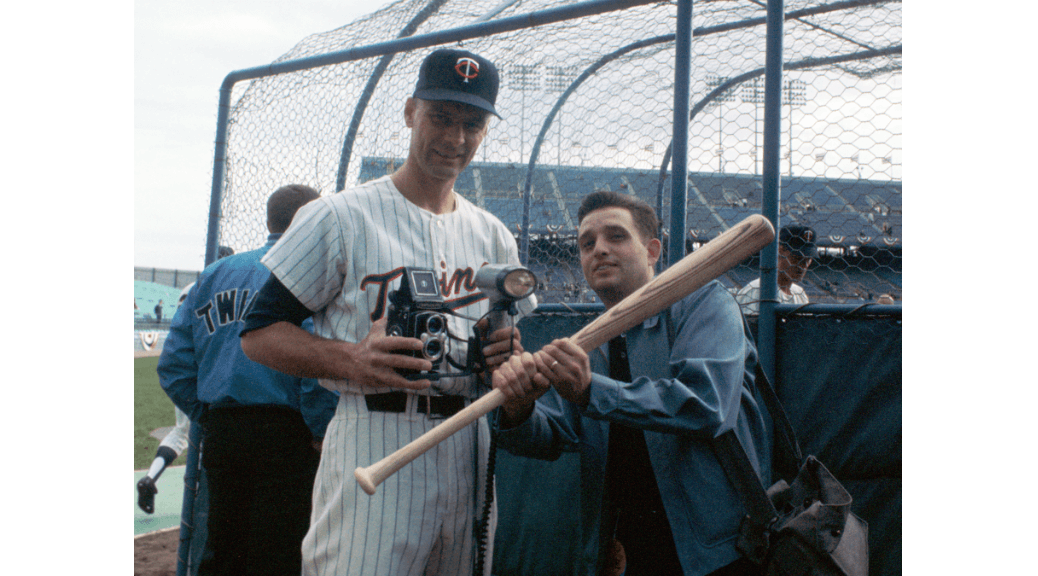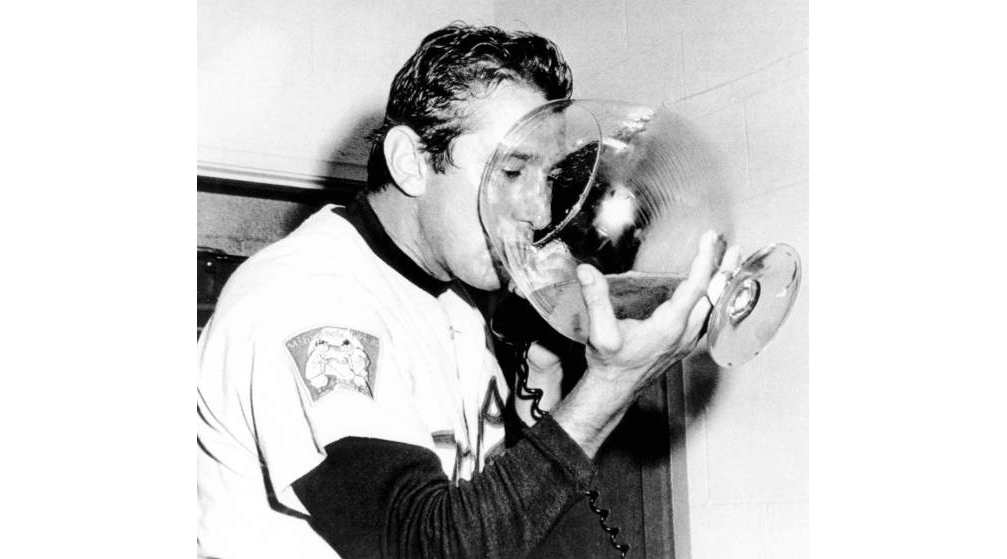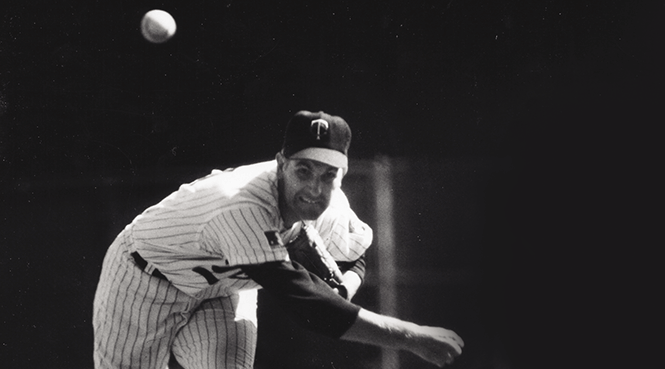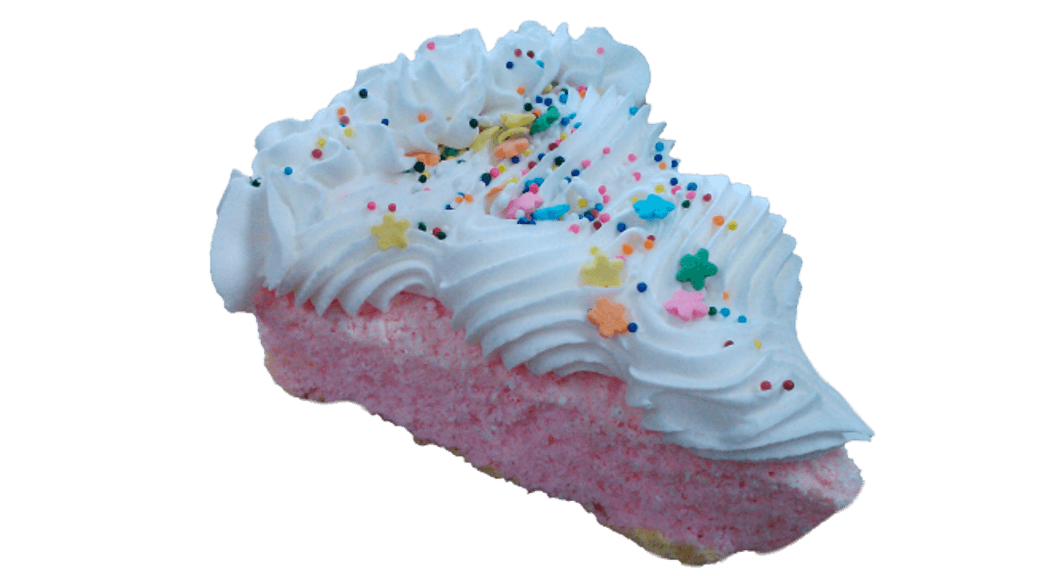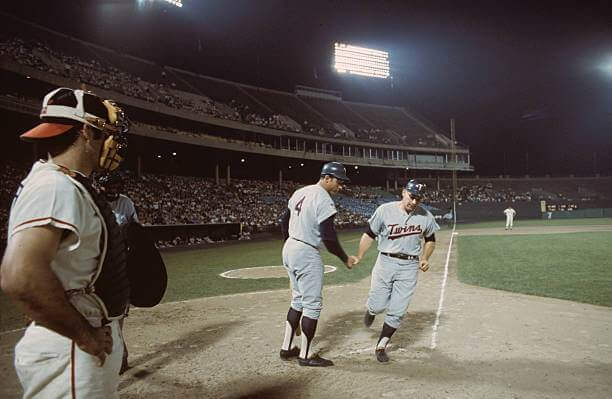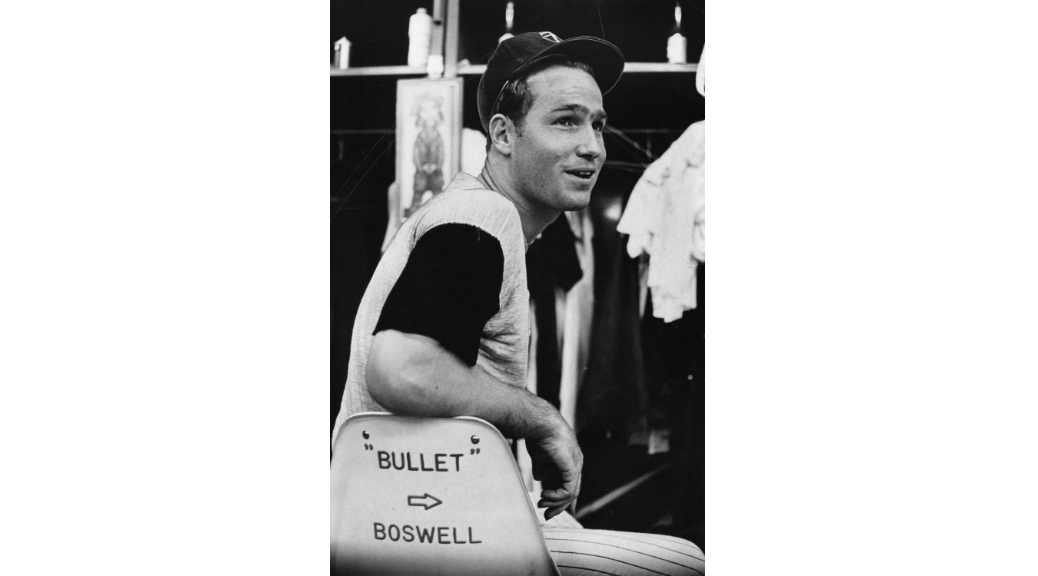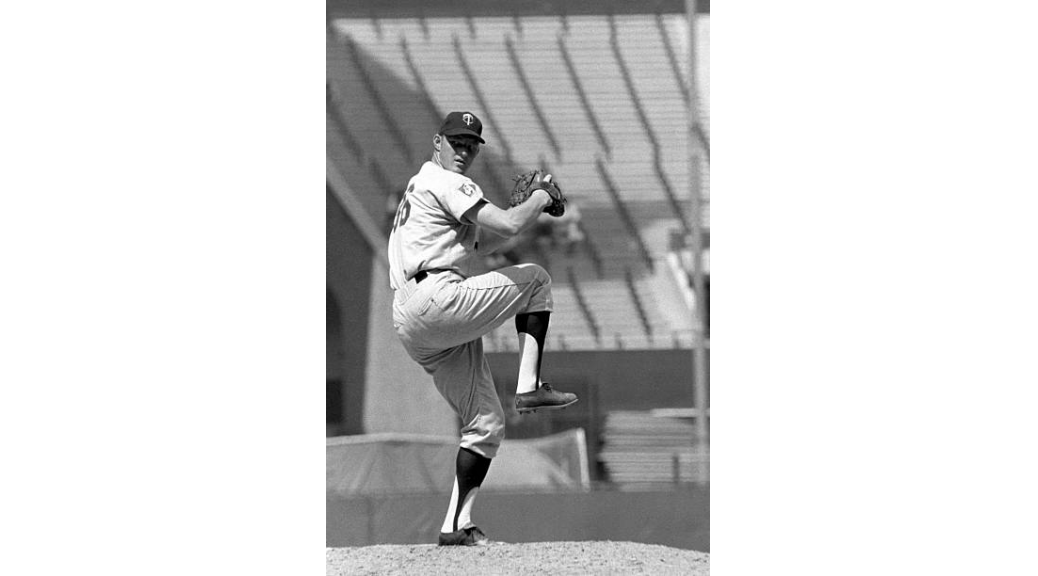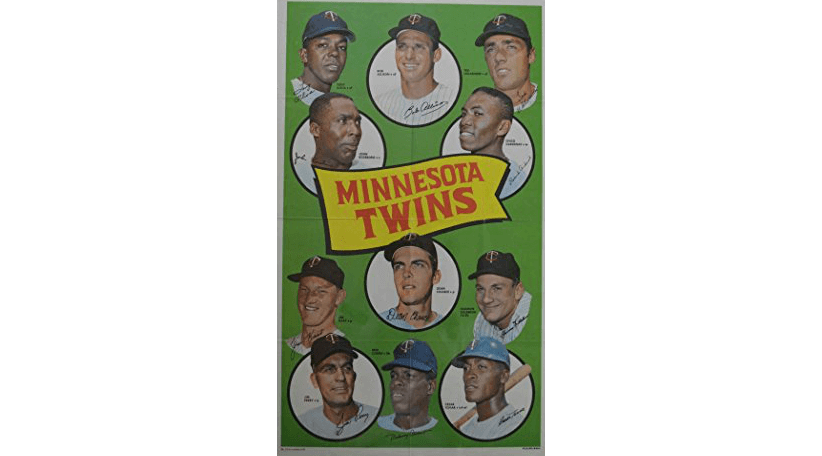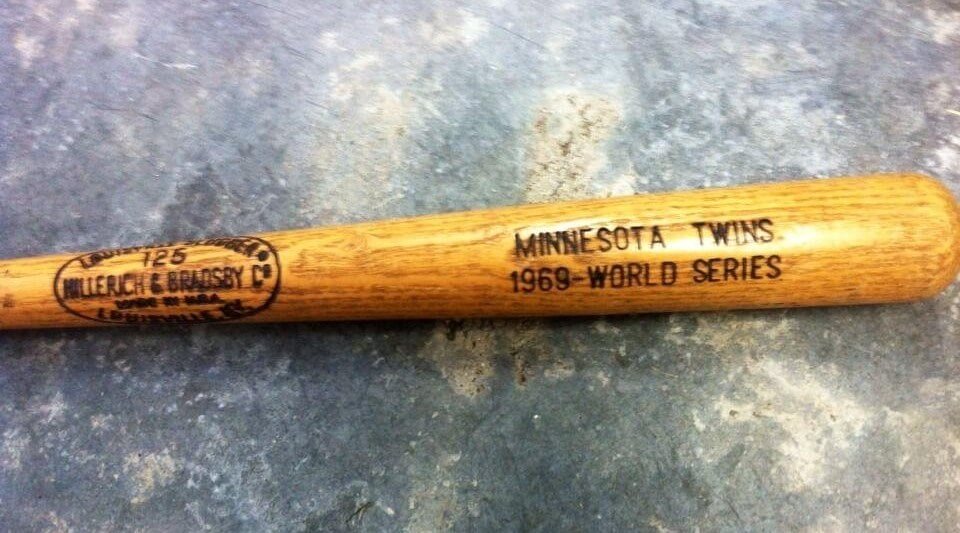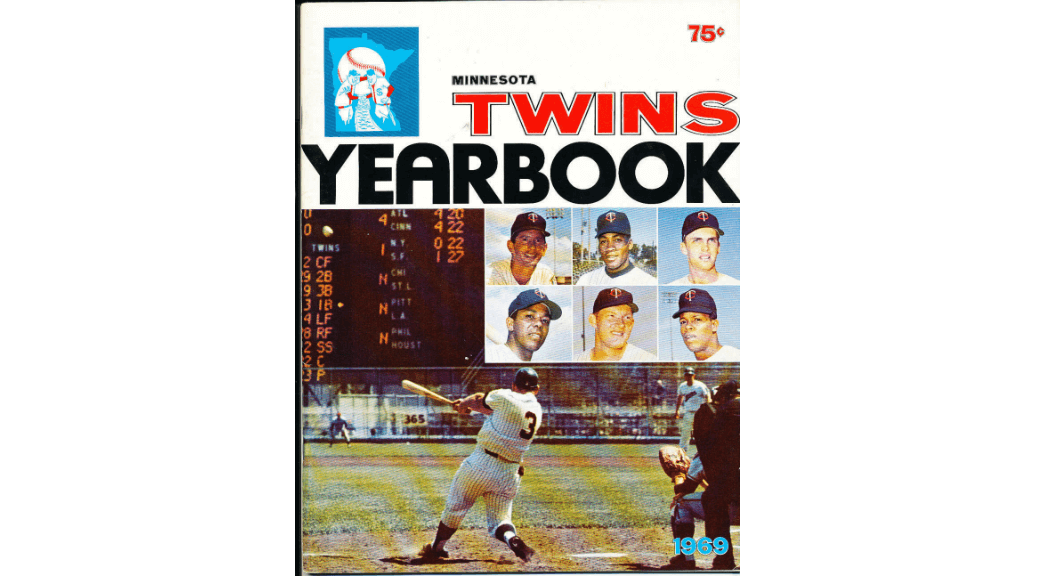WASHINGTON 4, MINNESOTA 3 IN WASHINGTON
Date: Wednesday, May 28.
Batting stars: Rod Carew was 2-for-3 with a double and two walks. Bob Allison was 2-for-4 with a double and two RBIs.
Pitching star: Jim Kaat pitched a complete game, giving up four runs on ten hits and four walks and striking out six.
Opposition stars: Frank Howard was 2-for-4 with a walk. Hank Allen was 2-for-5 with a double. Dennis Higgins struck out four in three shutout innings, giving up three hits and two walks.
The game: In the first a single by Ed Brinkman and a walk to Howard put men on first and third with one out. Future Twin Brant Alyea doubled home one run and a sacrifice fly by Ken McMullen made it 2-0. In the third, Allen doubled and a pickoff throw from George Mitterwald went into center field, allowing Allen to score and put the Senators up 3-0.
The Twins got on the board in the fourth. Singles by Carew and Harmon Killebrew were followed by a double by Tony Oliva, making the score 3-1. With men on second and third and none out, however, the Twins could not score more. Mitterwald struck out, Cesar Tovar lined to third, and Allison grounded out. The Twins got a pair of two-out walks in the fifth, but again could do nothing with them.
The Twins tied the score in the sixth. With one out, MItterwald singled, Tovar doubled, and Allison drove in two with a double. That was all they got, though, leaving the score tied 3-3. The Twins had a chance to take the lead in the eighth as well. With two out, Allison and Ted Uhlaender singled and a wild pitch put them on second and third. Manager Billy Martin elected not to pinch-hit for Jim Kaat, and the strategy backfired as Kaat struck out to end the inning.
The Twins had yet another chance in the ninth. Carew hit a one-out double and advanced to third on Killebrew's ground out. Oliva was intentionally walked, and Charlie Manuel pinch-hit for Mitterwald. But he lined to center, and the game remained tied.
The Twins would pay for their missed opportunities. In the bottom of the ninth, Mike Epstein drew a one-out walk and Allen hit a two-out single. Kaat remained in the game to face Howard, and Howard singled home the deciding run.
WP: Higgins (4-5). LP: Kaat (4-3). S: None.
Notes: Uhlaender and Tovar were both in the lineup, and had done the vast majority of the leadoff batting, but in this game Leo Cardenas batted first. It didn't work, as he went 0-for-4.
Johnny Roseboro must have had some minor injury, as he was again out of the lineup. Further, when Mitterwald was pinch-hit for, it was Tom Tischinski who went behind the plate. Roseboro would return to the lineup May 30.
Tovar was again at third base.
Carew was batting .400. Kaat's ERA is 2.69.
Maybe it's just the difference between 1960s baseball and today's game, but the decision to allow Kaat to bat in the eighth, and leaving him in through the ninth, seems strange. As we've already discussed, Kaat had a reputation as a good hitter, but he was a good hitter for a pitcher, not an actual good hitter. And while he was not pitching terribly, he was not exactly dominating the game, either. Martin had certainly shown no hesitancy to bring Ron Perranoski into games like this in the past, and Perranoski had not pitched since May 25.
Dennis Higgins was a major league reliever from 1966-1972. His best season was his first one, when as a twenty-six year old rookie he went 1-0, 2.52, 5 saves, 1.07 WHIP for the White Sox. He was apparently injured much of 1967, and when 1968 came around he had been traded to Washington. He had a solid year for them, going 4-4, 3.25, 13 saves, 1.27 WHIP. After that, however, wildness caught up to him. He continued to post decent ERAs for a couple more years, but his WHIP was over 1.5, leading one to think he may have let in a lot of inherited runners. In 1969, he went 10-9 (19 decisions out of the bullpen), 3.48, 1.58 WHIP. He was with Cleveland for 1970 and with St. Louis in 1971-72, although he spent most of his Cardinals years in the minors. Interestingly (to me, anyway), he is a cousin of ex-Twin Joe Crede. His major league numbers are 22-23, 3.42, 1.39 WHIP in 410.1 innings (241 games).
Record: The Twins were 24-18, in first place in the American League West, leading Oakland by one game.
